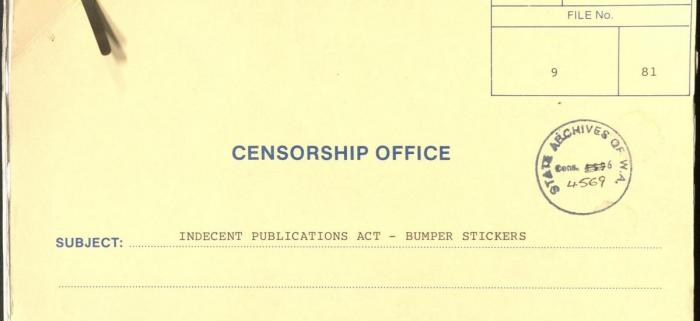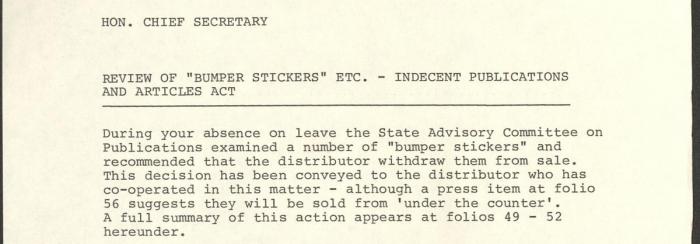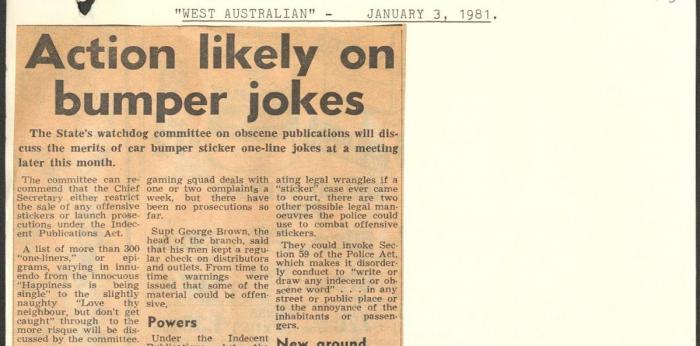This week Damien Hassan, Senior Archivist at the State Records Office, discusses something a bit unexpected in the State archives collection: banned bumper stickers. These stickers used to be vetted by the WA Censorship Office.
It would seem that the matter of censorship was not something that troubled government officials during the 1800s. In June 1917, the Perth Censorship Office that was attached to the Australian Military Forces wrote to Dr Battye to request several books be removed from the public library shelves during a time of war. The books included “Prison Memoirs of an Anarchist”, the “Selected Works of Voltairine de Cleyre” (a female Anarchist) and “Anarchism and Other Essays”. This request may have been prompted by general unease following the 1917 revolutions in Russia.
Following World War II, films were to receive special attention for censorship in Western Australia and legislation was introduced in 1947 to control movies and advertisements that could be publicly shown. Stage shows and art exhibitions were later to receive special attention for censorship purposes.
In Western Australia, government censorship was overseen by the Attorney General with a Censorship Office responsible for operational matters. Legislation for “Indecent Publications” can be traced back to 1902 although this Act did not seem to provide a definition as to what would be considered “indecent”. It may have been something that was thought of as self-evident.
In 1981, the State Advisory Committee of Indecent Publications focussed their attention on car bumper stickers and stubbie cooler labels. The Committee reviewed about 200 of these stickers that were commonly sold from newsagents and bookshops. Each sticker was rated by members of the Committee for their ability to offend. It was recommended that 23 of the stickers be withdrawn from sale. As you would expect, the matter received a fair amount of press coverage with different opinions expressed.
There are copies of some of these stickers on the government file held by the State Records Office, many of which remain objectionable and in very poor taste.
Following the review of bumper stickers, the Country Women’s Association wrote to the “State Watchdog” to commend the actions taken and to also suggest that consideration be given to restrict lewd and suggestive comments appearing on t-shirts, although the file does not indicate if this request was pursued.
In 1996, the legislation covering censorship was changed to focus more on classification of materials and to expand what was included e.g. computer games. This change was no doubt prompted by a very different medium that gained mainstream traction in the 1990s - the internet.
For more stories from the State Library and the State Records Office, follow @statelibrarywa and @staterecordsofficewa on Facebook and @statelibrarywa on Instagram.
Recorded live on ABC Radio Perth on 25 August 2020.


